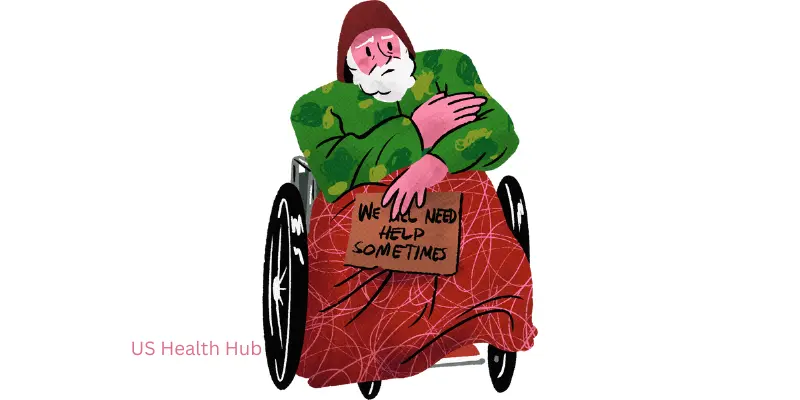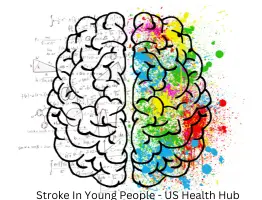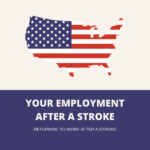Does Stroke Run in Your Family? Key Insights

Staying at your peak and avoiding complications often begins with understanding what sets them in motion. Identifying elements that raise risks allows you to make smart choices and stay proactive. One often-missed influence comes from individuals closest to you—especially when people in your circle have experienced similar setbacks. Noticing repeating patterns offers meaningful insight into what might arise later. This guide walks through how these connections shape outcomes, key signs worth paying attention to, and practical ways to stay ahead of possible difficulties.
What Is a Stroke?
ChatGPT said:
Before diving into inherited risks, it’s important to understand what actually occurs during this serious medical event. It happens when circulation feeding a portion of brain tissue becomes blocked or slows down, cutting off oxygen along with vital nutrients. Once that flow stops, affected areas begin to sustain damage almost instantly. Time matters immensely—rapid emergency action can sharply reduce long-term harm and lower chances of life-changing outcomes.

There are two main types of this condition:
Ischemic stroke: This form occurs most frequently, accounting for roughly 87% of incidents. It develops when a clot obstructs or tightens an artery responsible for delivering vital circulation to brain tissue, reducing flow and triggering rapid damage in that region.
Hemorrhagic stroke: This form arises when a vessel inside brain tissue ruptures, allowing blood to spill into surrounding areas or nearby spaces, creating sudden pressure and rapid injury.
These occurrences can result in long-term difficulties, such as reduced mobility, difficulty articulating thoughts, or problems with recalling information and focusing. In the most serious situations, they can even be life-threatening. That’s why it’s crucial to understand what factors might make someone more vulnerable—particularly when similar situations have happened to those connected to you.
How Your Family Background Plays a Role in Future Wellness
Having close relatives who’ve faced an event like this can raise your chances of encountering something similar. This isn’t a factor you can erase simply by changing daily habits. When a parent, sibling, or grandparent has dealt with an episode of this kind, your odds tend to rise compared with someone whose family hasn’t gone through anything comparable. So what creates that link?
1. Genetic Predisposition
Certain traits can pass from one generation to another, shaping how a person functions and responds to strain over time. For instance, some inherited patterns influence how fats are processed, making it tougher to keep levels within a normal range. A condition known as familial hypercholesterolemia shows this clearly—cholesterol regulation becomes difficult, allowing fatty deposits to build up along vessel walls. As years go by, this buildup, called atherosclerosis, can raise risks for serious issues involving heart or brain regions.
2. Shared Lifestyle Factors
Even though inherited traits can play a part, everyday habits and routines within a household can shape long-term well-being just as strongly. When people regularly eat meals packed with salt, saturated fats, or heavily processed items—paired with long hours spent sitting or staying inactive—such patterns can slowly create complications over many years. Limited movement combined with these eating choices may set the stage for future issues. In addition, frequent tobacco use or heavy drinking can push risks even higher, increasing chances of serious outcomes later on.
3. Inherited Health Conditions
Some conditions, such as an irregular heartbeat or problems with blood flow, can be passed down through generations. If those in your close circle have dealt with these conditions, you may be more likely to encounter similar complications yourself. These inherited characteristics can increase susceptibility to serious consequences over time.
How Much Does Family Background Impact the Chances?
Degree of added risk can shift based on several important factors—such as how many close relatives have faced this issue, how closely each person is linked to you, and how early in life their episode occurred. For instance, if one parent experienced this event, your chances may rise to a moderate level compared with someone whose family has no history at all. If both parents went through it, odds can climb much higher. A sibling’s experience—especially one that happened before age sixty-five—also serves as a strong signal worth noticing. Remember, none of this guarantees you will face the same situation, yet it offers a clear reason to stay attentive and make daily choices that lean toward long-term protection.
If one parent has had a stroke, your risk may be about 1.5 times higher than someone without a family history.
If both of your immediate kin have dealt with it, your likelihood of encountering a similar situation could be as much as three times higher. Genetics and inherited traits play a significant role, making it especially important to monitor your habits, diet, and overall well-being to reduce potential complications.
If a brother or sister has faced a similar condition, your likelihood of encountering something comparable may increase—particularly if it occurred before turning 65.
Just because it runs in your relatives doesn’t guarantee you’ll face it too. It simply means it’s wise to pay closer attention to your habits and overall lifestyle choices.

Additional Contributors to the Issue
While your background may influence things, it’s only part of the picture. Other contributing factors include:
Elevated blood-flow strain: A major contributor to sudden brain emergencies arises when pressure pushing blood through vessels climbs too high. Persistent force can gradually weaken vessel walls, creating conditions that may lead to blockages or ruptures capable of interrupting normal circulation.
Smoking: Tobacco use promotes buildup along vessel walls while adding strain across cardiovascular pathways. As years pass, circulation becomes less efficient, forcing heart and brain regions to work harder than usual. This added burden raises chances of serious complications.
Diabetes: Constantly high sugar levels in blood can harm nerves and vessels across systems, making brain and other organs more prone to serious complications over time.
Elevated cholesterol: Too much cholesterol allows fatty deposits to form along vessels delivering blood to brain regions. Over time, this buildup narrows pathways, slows circulation, and increases risk of severe complications.
Obesity: Extra weight adds significant strain on heart function and overall circulation. It often makes blood sugar management more difficult and increases chances of complications affecting cardiovascular performance and systemic flow.
Physical inactivity: Limited movement over time can take a serious toll. Reduced daily activity slows circulation, weakens muscles, stiffens joints, lowers energy, and diminishes stamina. Vital regulatory functions—such as blood flow and metabolism—may become impaired. Even moderate regular motion helps maintain strength, supports mental clarity, and keeps key systems operating efficiently, lowering risk of future complications.
Excessive alcohol consumption: High alcohol intake burdens circulation and overall function, potentially creating long-term complications that affect brain regions, heart performance, and systemic blood flow.
What Steps Can You Take to Protect Yourself?
Even if this tends to run in those connected to you, there’s no need to panic—plenty of effective steps can help you stay vigilant and protect your overall well-being. Consider these practical strategies:
1. Know Your Family History
First step involves collecting details about your own history along with experiences of close relatives concerning heart function, blood sugar control, or other circulation-related issues. Have open conversations with trusted family members to learn if anyone has faced similar challenges. Sharing these insights with a medical professional provides a clearer understanding of your unique situation and enables creation of a plan customized to support long-term wellness and everyday routines.
2. Get Regular Check-Ups
Visiting a doctor annually allows you to identify potential concerns before they become serious—such as irregular circulation or difficulties with how your body handles nutrients. Monitoring these numbers consistently can have a significant impact on long-term well-being.
3. Adopt a Heart-Healthy Diet
Food choices have a major impact on how systems function and energy levels throughout each day. Focus on filling plates with colorful fruits, fresh vegetables, whole grains such as brown rice or oats, and lean proteins like fish, poultry, or beans. Including sources of healthy fats—avocado, olive oil, and nuts—can further strengthen circulation and overall function. Limiting salty snacks, processed foods, and greasy fast meals is also beneficial. One approach many find effective is the DASH eating plan, originally created to reduce arterial pressure. It emphasizes fiber, potassium, and magnesium-rich foods that support heart performance and smooth circulation.

Stay Physically Active
Maintaining regular movement is one of the most effective ways to boost overall function and long-term wellness. Aim for about 150 minutes of moderate activity each week, such as brisk walking, swimming, dancing, or biking at a comfortable pace. These activities keep heart and circulation efficient. Adding strength-focused sessions—like resistance exercises or weight training twice weekly—builds endurance, balance, and muscle tone, making everyday tasks easier while lowering future risk of complications.
Quit Smoking
Stopping tobacco use is one of the most impactful steps for protecting brain function and overall wellness. Consult a medical professional about strategies, tools, and programs designed to achieve permanent cessation.
Limit Alcohol Consumption
If alcohol is part of a routine, keep intake moderate. For most adults, this typically means one drink per day for women and up to two drinks per day for men.
Manage Stress
Chronic tension places ongoing strain on systems, increasing vulnerability to serious issues over time. Incorporate calming practices such as meditation, gentle yoga, focused breathing, or spending time with uplifting companions. Regular moments of relaxation strengthen resilience and reduce long-term risk of complications.
Take Medications as Prescribed
When prescribed medication for circulation, heart function, or related conditions, follow directions precisely. Consistent adherence maintains stability, enhances system response, and improves chances of favorable long-term outcomes.
Importance of Early Detection
Recognizing warning signs of this medical emergency and acting immediately can dramatically improve outcomes. Remember acronym FAST to identify symptoms quickly:
Face drooping
Arm weakness
Speech difficulty
Time to call emergency services
If you or someone around you experiences these symptoms, don’t wait—call 911 immediately.
Does a Family History of Stroke Mean I Will Definitely Have One?
No, seeing this condition show up in your close circle doesn’t guarantee it will affect you too. It mainly points to a stronger possibility. Inherited traits, like blood sugar irregularities, elevated cholesterol, or circulatory challenges, can influence your vulnerability, but what you do every day plays an equally important role. Focusing on nutritious meals, keeping your body moving regularly, steering clear of smoking and overdrinking, and finding ways to manage tension can greatly reduce the likelihood, even if it has appeared in those connected to you.
Can it still happen even if no one in my family has had one?
Even if no close relatives have experienced an event like this, it doesn’t mean risk is zero. Choices around nutrition, regular movement, and monitoring key markers such as blood sugar, cholesterol, or heart rhythm can have a major impact. Environmental factors—where you live, work, and spend daily hours—also influence how systems respond over time. Staying proactive by choosing wholesome foods, maintaining consistent activity, and keeping up with routine medical visits can greatly lower chances of serious complications later on.
Final Thoughts
If this tendency appears in close relatives, it can feel concerning—but it doesn’t have to determine your future. Staying mindful and making thoughtful choices can significantly increase chances of avoiding similar experiences. Even small adjustments in daily routines can create meaningful improvements. Take charge, keep learning, and consult a trusted medical professional when guidance is needed.
Wellness is a valuable treasure, and investing time in personal care always yields returns. Here’s to gaining strength, living fully, and enjoying each day with more energy, balance, and peace of mind!
Here are some referral / reading links:
Stroke Risk Factors, Genetics, and Prevention — shows how genetics and family history are non-modifiable risk factors for stroke.
Stroke Doesn’t Age: Protecting Your Brain in Your 20s & 30s
After Stroke? Finding the Financial Lifeline You Need
Are strokes hereditary? (Medical News Today) — clearly explains the role of inherited risk, genetic disorders, and how family history impacts stroke likelihood.
Overcoming Challenges in Left-Side Stroke Recovery
Family History, Heart Disease and Stroke (American Heart Association) — outlines how knowing your family medical history helps estimate stroke and cardiovascular risk.



